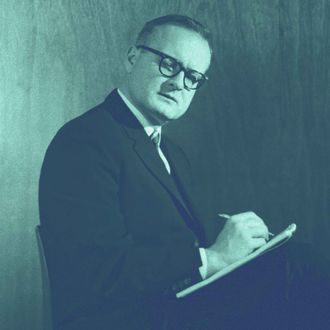
Over the last half-century or so, there’s been a major revolution in how experts understand human behavior: Biological explanations have really caught on. Genes and hormone levels and brain structures and other aspects of our physical biology (many of which interact with each other, of course) have been connected directly or directly to behavior, sometimes in surprising ways, raising new questions about the ancient debate over the mind-body divide, or lack thereof.
But do biological explanations for behavior — as opposed to explanations traced back to traumatic experience or other non-biological factors — change how mental-health professionals view people suffering from mental disorders? That’s the subject of a recent study by Matthew Lebowitz and Woo-young Ahn in Proceedings of the National Academy of Sciences.
Christian Jarrett ran down their work in the British Psychological Society’s Research Digest:
Over two hundred psychologists, psychiatrists and social workers were presented with vignettes of patients with conditions such as social phobia, depression or schizophrenia. Crucially, some of these vignettes were accompanied by purely biological explanations focused on factors like genes and brain chemistry, while other vignettes were accompanied by psychosocial explanations, such as a history of bullying or bereavement. Next, the mental health professionals reported their feelings by scoring how far a range of adjectives - such as “sympathetic”, “troubled” and “warm” - fitted their current state.
Vignettes accompanied by biological explanation provoked lower feelings of empathy from the clinicians, and this was true regardless of their specific profession. Both biological and psychosocial explanations triggered similar levels of distress, so the reduced empathy associated with biological explanation was not simply due to psychosocial explanations being more upsetting. The mental health professionals rated the biological explanations less clinically useful; biological explanation also prompted them to have less faith in psychotherapy and more confidence in drug treatments.
Lebowitz and Ahn think this might have to do with the dehumanizing effect of biological explanations. This makes sense: When we’re told someone has something physically wrong with them, there’s a gut-reaction impulse to shunt them into a “diseased” category that doesn’t always have the best associations. But when we’re told someone had a traumatic childhood, for example, we tend to react with empathy. These are important distinctions to understand, given that the biological view of psychological disorders is only going to become more and more prevalent.




